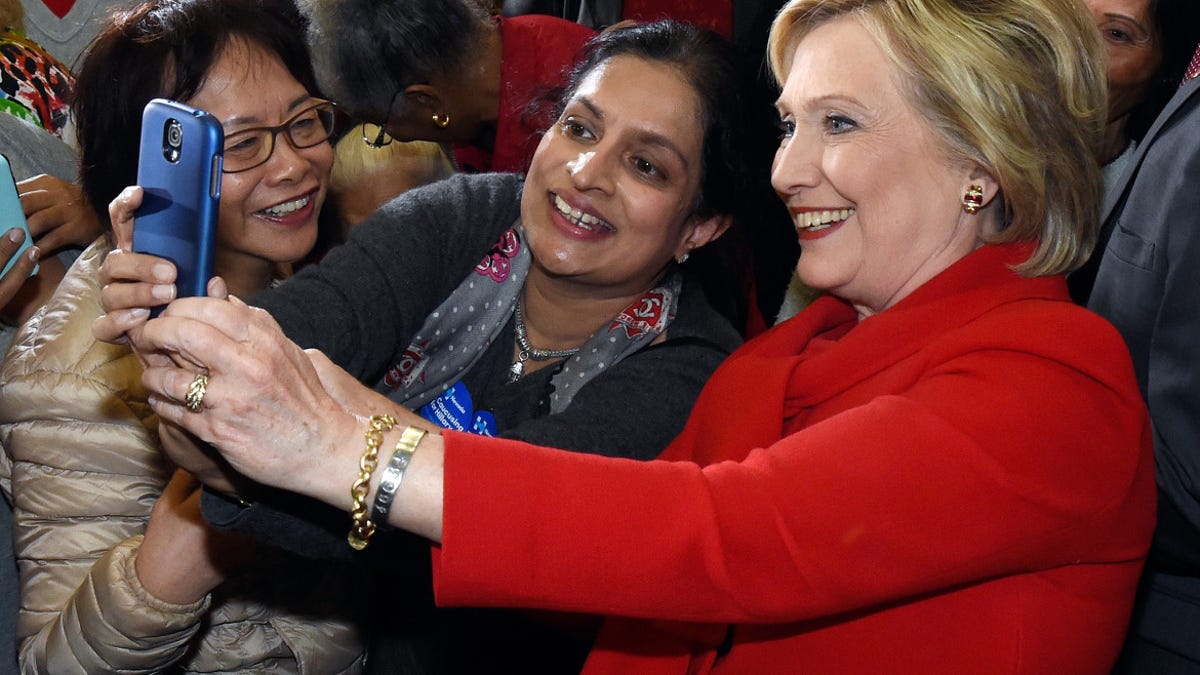Clinton's tech policy backs entrepreneurs and more internet access
Hillary Clinton unveils a tech agenda that promises to reinvigorate the economy. At least one critic warns that her plans are costly.
Hillary Clinton sees technology as the key to a thriving economy and an important tool in reducing social and economic inequality.
On Tuesday, the presumptive Democratic nominee for president released her platform on technology policy.
It hits five key areas: Ensuring better STEM (science, technology, engineering and math) education to promote entrepreneurship; investing in broadband and wireless infrastructure; promoting America as a technology leader; protecting privacy; and using tech to make a smarter and more innovative government.
The overall goal of the policy is to "harness the power of technology and innovation so that it works for all Americans, creating good-paying jobs throughout the country." By focusing on these five areas, Clinton believes, the policy will "ensure that technology is a force for broad-based growth, reducing social and economic inequality, and securing American leadership on the global stage."
The platform underscores the growing role of technology as an issue in this presidential election, one in which presumed Republican nominee Donald Trump has already weighed in on where Apple should build its iPhones and how Clinton handled her own private e-mails as secretary of state. It also illustrates the importance of tech as an engine of the US economy.
Clinton's lofty ambitions are backed by a set of initiatives largely funded by the federal government. Included are programs to promote more technology courses in schools and funding grant programs for teachers pursuing STEM subjects as well as federal financial aid and grants to students in certificate programs for things like computer coding. It also includes new programs, like one that would allow entrepreneurs just out of college to defer student loan payments with zero interest up to three years.
Also included in the plan is a call for a "Manhattan-like project" on cybersecurity that includes the creation of a national commission to examine how to balance the interests of law enforcement with the needs of the tech and privacy communities, a debate spurred on by the standoff between Apple and the FBI in various cases around the country.
Clinton also highlighted her strong support for the FCC's net neutrality rules that were adopted last year and upheld earlier this month by a federal appeals court. These controversial rules also have strong support from President Barack Obama but have been criticized by Republicans. Trump has called the rules an attack on the internet that will lead to censorship of conservative news outlets.
Other issues tackled in Clinton's proposal include seeing to it that the US remains a leader in wireless internet services. The platform seeks to ensure access to wireless spectrum for superspeedy 5G cellular services, as well as better access to broadband services through an expansion of infrastructure and free public Wi-Fi. Clinton also acknowledged a need for changes to copyright law and even touched on reforming immigration policy to ensure technology companies have access to the best and brightest minds from anywhere in the world.
Consumer Technology Association CEO Gary Shapiro largely praised Clinton for her vision but acknowledged that some of her proposals may be costly and he questioned how she'd pay for them.
"It's encouraging that Secretary Clinton is taking the initiative as the first major presidential candidate in this election cycle to put technology and innovation issues front-and-center in the national policy debate," he said in a statement. "Her proposals are admirable, but some, like free Wi-Fi to the public, come with staggering costs that go unaccounted for in her tech agenda."
Still, Shapiro, an advocate for free markets and limited government who has openly opposed Trump, said he's encouraged by her proposals and hopes other presidential candidates will "soon follow suit and lay out their agendas to support innovation and the US tech economy."


